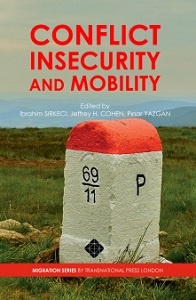Perspectives on communal violence against Kurds in Turkey
Perspectives on communal violence against Kurds in Turkey
Author(s): İmren Borsuk
Subject(s): Geography, Regional studies, Studies in violence and power, Transformation Period (1990 - 2010), Present Times (2010 - today), Migration Studies, Politics and Identity, Peace and Conflict Studies
Published by: Transnational Press London
Keywords: Turkey; Kurds; communal violence; perspectives; violence; identity; cultural and linguistic rights; reforms;
Summary/Abstract: The second half of the 2000s saw an “expedited process” for the Kurdish question in Turkey as many reforms regarding cultural and linguistic rights were put into place by the AKP (Justice and Development Party, Adalet ve Kalkınma Partisi) government at an unprecedented speed compared to earlier governments. Moreover, the negotiations to disarm the PKK (Kurdistan Workers’ Party, Partiya Karkerên Kurdistan), which were also unimaginable before, started in late 2012 and came to a halt after the elections on 7 June 2015. The reforms shattered the pre-existing relationship between Kurds and state authorities that viewed Kurdish identity as an existential threat to the unity of Turkish state. Ironically, the betterment of Kurdish rights coincided with the increase in communal violence incidents against Kurds. My study on communal violence against Kurds is compiled from the archives of Özgür Gündem and Dicle Haber Ajansı (Dicle News Agency) and it finds more than 600 communal violent acts against Kurds between 1999 and 2012. Communal violent acts can be described as violence in which one of the motives of mobilization is “communal” that targets the communal identity of certain persons or groups.
Book: Conflict, Insecurity and Mobility
- Page Range: 131-145
- Page Count: 15
- Publication Year: 2016
- Language: English
- Content File-PDF

